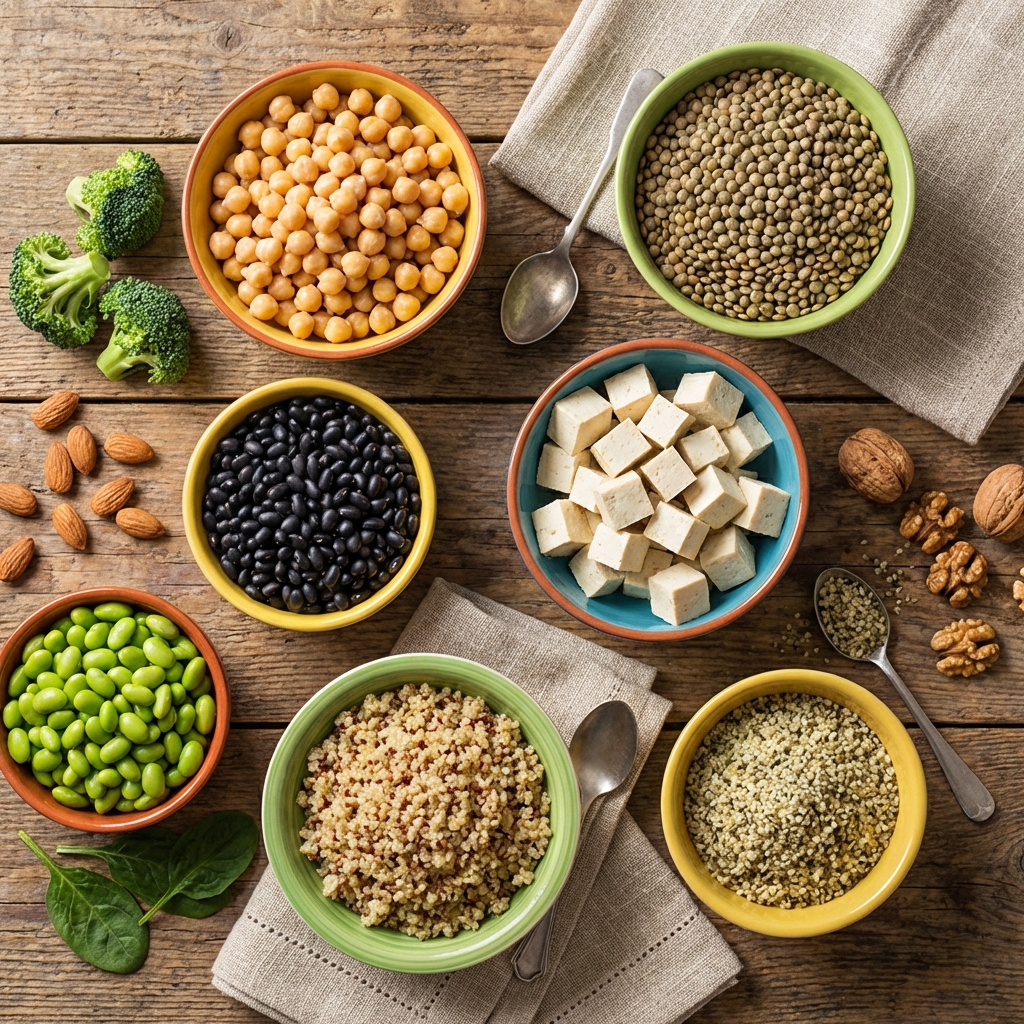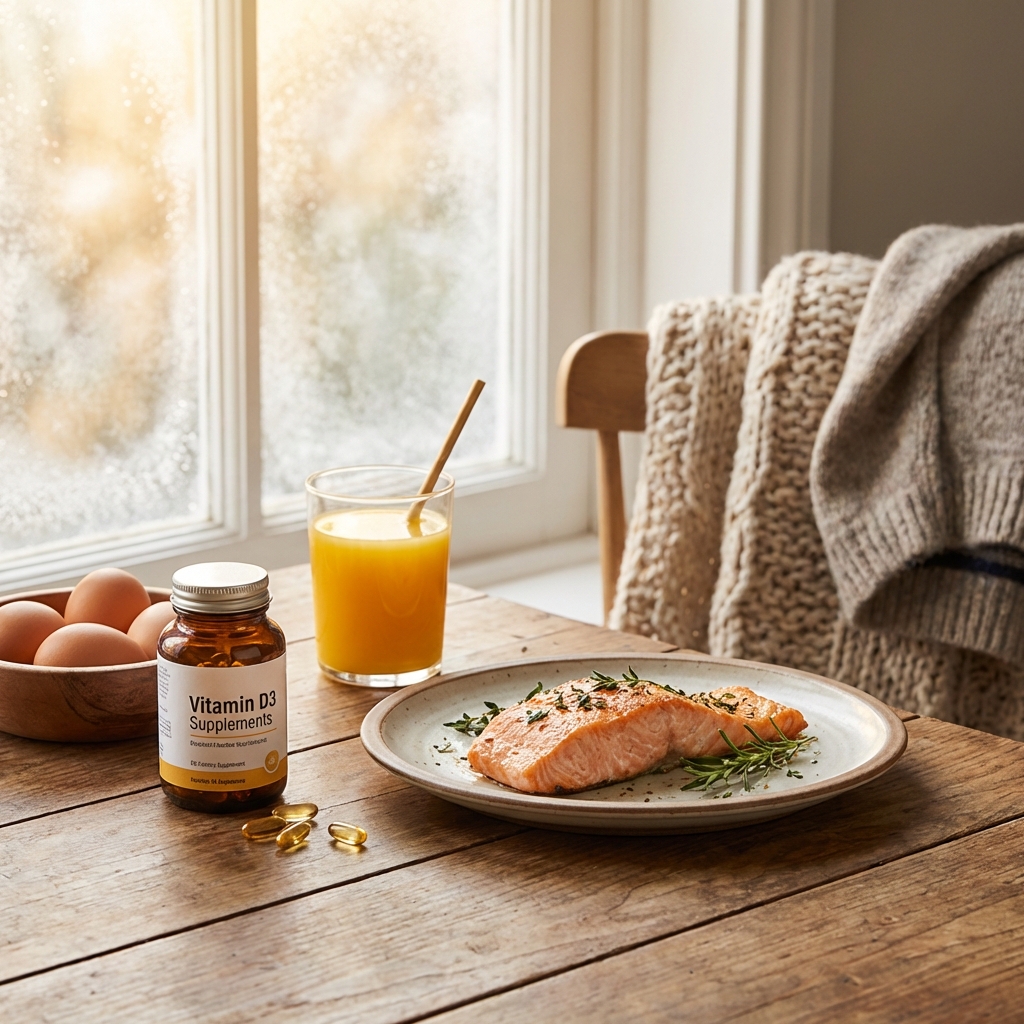Essential Nutrients for Pregnancy: The Ultimate Checklist

Is this safe to eat? 🥑
Scan any meal to instant pregnancy safety checks and nutrition insights.
When you find out you're pregnant, one of the first things you'll hear is "take a prenatal vitamin." And while that's excellent advice, it's really just the insurance policy. The foundation of your baby's development — the raw materials for their brain, bones, and organs — comes from the food you eat every day.
But navigating pregnancy nutrition can feel overwhelming. Do you need more iron? How much folate is enough? What if you don't like milk?
This guide cuts through the confusion. We're skipping the vague "eat healthy" advice and diving into the specific building blocks your baby needs, why they need them, and exactly how to get them on your plate.
The "Big 5": Your Pregnancy Powerhouses
While you need a spectrum of nutrients, these five are the heavy lifters during pregnancy.
1. Folate (Vitamin B9)
The Builder
Why it matters: Folate is non-negotiable in the first trimester. It prevents neural tube defects (like spina bifida) and is crucial for creating new DNA. You literally cannot build a baby without it.
How much: 600 mcg DFE (Dietary Folate Equivalents) daily.
Best Real Food Sources:
- Lentils (1 cup cooked = ~350 mcg)
- Dark leafy greens (Spinach, Turnip greens)
- Asparagus
- Avocado
- Fortified grains (cereals, pasta)
Note: "Folic Acid" is the synthetic form found in supplements and fortified foods. "Folate" is the natural form found in plants. Both are effective, though some women with MTHFR gene variants absorb Methylfolate better.
2. Iron
The Transporter
Why it matters: During pregnancy, your blood volume increases by nearly 50%. You need extra iron to make hemoglobin, the protein that carries oxygen to your tissues and your baby. Iron deficiency is the most common nutritional deficiency in pregnancy and causes severe fatigue.
How much: 27 mg daily (almost double the non-pregnant need!).
Best Real Food Sources:
- Red meat (Beef, Lamb) — Contains 'Heme' iron, which is easiest to absorb
- Chicken thighs
- Sardines
- Lentils and beans (Pair these 'Non-Heme' sources with Vitamin C!)
- Spinach
Pro Tip: Calcium blocks iron absorption. Don't take your iron supplement with a glass of milk or your morning coffee.
3. Calcium
The Skeleton Crew
Why it matters: Your baby needs calcium to build their bones and teeth. Here's a scary fact: if you don't eat enough calcium, your baby will literally take it from your bones. To protect your own bone density later in life, you must keep your intake high.
How much: 1,000 mg daily.
Best Real Food Sources:
- Yogurt and Milk
- Hard cheeses (Cheddar, Parmesan)
- Fortified plant milks
- Sardines (with bones)
- Tofu (set with calcium)
4. DHA (Omega-3)
The Brain Booster
Why it matters: DHA is the primary structural fat in the human brain and retina. It accumulate rapidly in your baby's brain during the third trimester.
How much: At least 200-300 mg daily.
Best Real Food Sources:
- Fatty fish (Salmon, Mackerel, Sardines, Trout)
- Algal oil supplements (Vegan)
Note: Plant sources like walnuts and flaxseeds provide ALA, which converts poorly to DHA. Direct sources (fish or algae) are superior.
5. Vitamin D
The Regulator
Why it matters: Vitamin D works with calcium to build baby's bones and supports your immune system. Deficiency is linked to a higher risk of pre-eclampsia.
How much: 600 IU (Minimum) — many experts suggest higher (1000-4000 IU) depending on your blood levels.
Best Real Food Sources:
- Fatty fish (Salmon)
- Egg yolks
- Sunlight (though hard to measure!)
The Unsung Heroes
Beyond the big five, these nutrients deserve a spot on your plate:
- Choline: Critical for brain development and preventing neural tube defects.
Source: Egg yolks (don't skip the yolk!), Salmon. - Iodine: Essential for thyroid function and baby's developing brain.
Source: Cod, Dairy, Iodized salt. - Magnesium: Helps regulate blood pressure and can reduce leg cramps.
Source: Pumpkin seeds, Chia seeds, Almonds, Spinach. - Vitamin C: Necessary for collagen (skin/tissue) and helps you absorb iron.
Source: Oranges, Bell peppers, Strawberries, Kiwi.
Quick Reference: The Pregnancy Nutrient Table
| Nutrient | Key Job | Top Food Bet |
|---|---|---|
| Folate | Neural tube & DNA | Lentils / Greens |
| Iron | Oxygen transport | Red Meat / Beans |
| Calcium | Bone strength | Yogurt / Cheese |
| Vitamin D | Immunity & Bone | Salmon / Sunshine |
| Choline | Brain structure | Eggs |
| DHA | Brain & Eyes | Fatty Fish |
Can I Just Take a Vitamin?
Prenatal vitamins are crucial, but they are supplements, not substitutes. Nutrients from real food are often more bioavailable (easier for your body to use) and come packaged with fiber, antioxidants, and other compounds that pills lack.
The Strategy: Use your prenatal to cover your bases (especially for Folate and Iron), but aim to "eat" your nutrients whenever possible. Think of your meals as the primary fuel source and your vitamin as the backup generator.
When to Talk to Your Doctor
Every pregnancy is unique. You may need extra supplementation if:
- You follow a vegan or vegetarian diet (Vitamin B12, Iron, Zinc)
- You have a history of anemia
- You are expecting multiples (twins+)
- You have hyperemesis gravidarum (severe nausea)
Always clear new supplements with your provider before adding them to your routine.
Want to track your meals and check food safety instantly? Try PregnancyPlate — trusted by 50,000+ expecting mothers.



